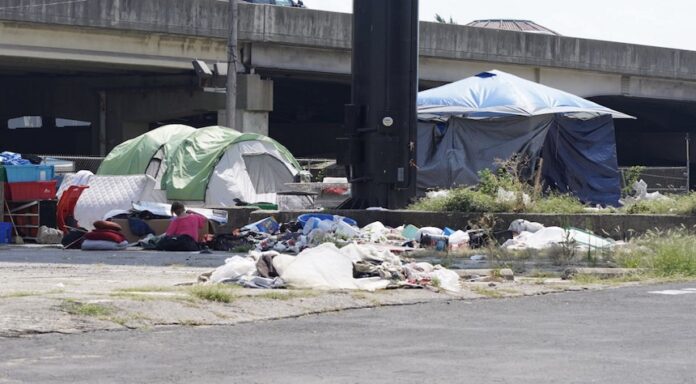Tampa, Fla. has a large homeless population. Although the city claims that only 2,040 residents “experience homelessness,” the figures don’t add to the total, as the number was 16,000 in 2001.
The left wanted to help as many homeless people in Tampa as possible because the GOP had held its national convention there in 2012. The greedy Republicans are spending dirty oil money to buy luxury hotels and restaurants in the land of the poor, but they leave without even looking at real Tampa. Did the media actually say that? CBS found a couple in Texas to interview.
Tampa’s problems are a direct result of who is running the city: Democrats. They want to appear good, particularly when an openly lesbian, white woman mayor is at the helm, whose legacy will be to transform Tampa into a glittering Miami rival. How much confetti will the partisan hacks throw over the truth, though?
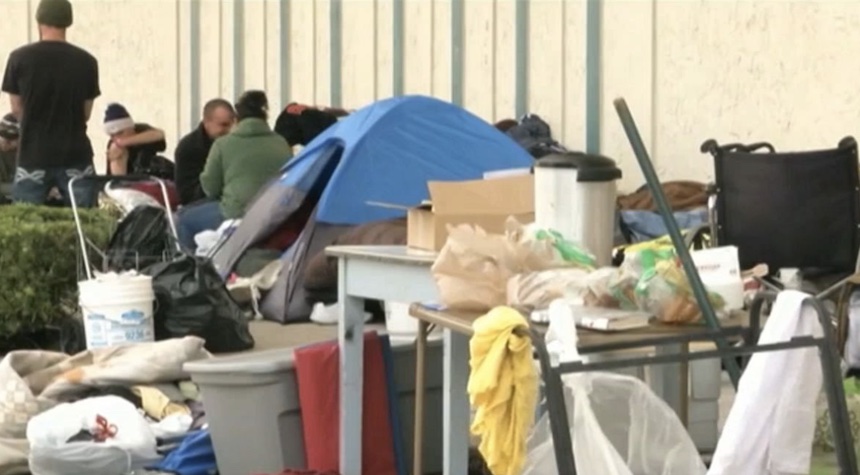
You can find out more about their Homeless Point in Time Count 2023. The count was done in one day by a few volunteers.
The left is playing with statistics and semantics. But there’s a good reason why homeless people do not ask each other “Where are you from?” but rather “Where are you staying?”. Everything is temporary. All is uncertain. Everyone is homeless. They live in bus stops, alcoves, wooded medians, or on benches at bus stops. If they have $15, they will rent a shelter with a cot.
Mark, a 64-year-old friend, lost his job as a manager, pension, benefits, and savings when he was first diagnosed with lung cancer eight years ago. He was unable to pay rent or get a job because no one wanted to hire an older man with cancer. He asks for food at an intersection near my workplace four days a week. He is just one of dozens of “regulars”, I see them on this road. There are many of these roads in my small corner of the city.
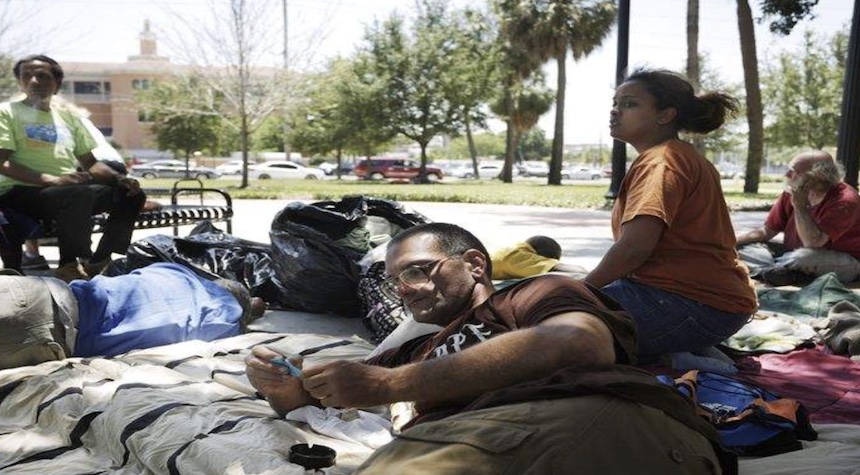
Is he protected? Even if he has to go without food for a couple of days, yes. Mark is still homeless but sheltered, and no one in Tampa wants to call him “neighbor.”
Leftists are shamelessly pushing the “people experiencing homelessness” line. The left will tell us that we shouldn’t categorize people based on their circumstances. But let’s face it: the people peddling this narrative are blatantly oblivious to the truth. They want to sugarcoat the situation because they find the idea of looking at the facts uncomfortable. They’ve never been homeless and they hope to never be.
A constant state of uncertainty changes you. It sounds like something bad is happening to you. This is in line with leftist thinking. Being homeless is not passive — it’s a way to live that defines you. Cancer survivors did not simply “experience” cancer, they dug into their resources, faith, networks, and willpower to overcome it. The survivors are changed forever because they experience a season of fear and uncertainty.
I was raised with two silver spoons in my mouth and one in my hand. My parents gave me the best education, food, and a mansion on a gated road. There was a time in my life when I was homeless.
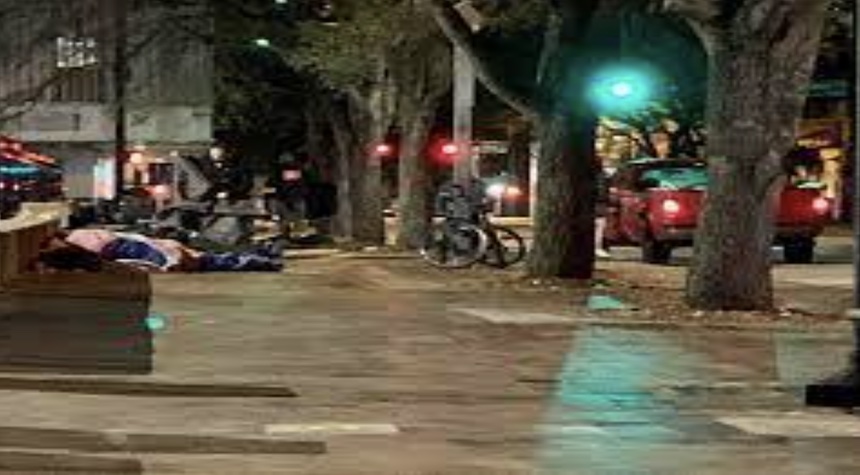
I didn’t have a place where I could find refuge, comfort, and safety. Privacy and hygiene were no longer necessities. Because I lived in my car, I had no place to store or access things. I moved from one parking space to another all the time. The sudden change in my situation meant that I had to shower at the gym for a few weeks. I lost everything so quickly that I had no time to dry my clothes in the washer. I took them out of the bag in which they were placed and carried them with me. In August, everything in my trunk had molded.
I had no money because my finances were in the hands of attorneys and legal proceedings. Even though I was employed, I ended up in a turbulent and unexpected relationship with security. I went to work every day. But I’ll tell you, if I didn’t go to the office, I would be terrified because I was only 20 and had nowhere to turn. My family did not know or care about my situation.
With the generous help of a few people, I was finally able to move back into a small apartment. Before that, I had no idea I would be so grateful to have a floor mattress, a refrigerator, a washing machine, and a dryer. Even years later, I still remember baby wipe baths when I take a hot, soapy shower.
Homelessness changed me. This kind of life can change the person who lives it. I had it better than most people because I never needed to beg for food or dig through dumpsters to find one. In the middle of a busy city, I never felt like an outsider. No one thought I was lazy, crazy, or a drug user.
If you want to minimize what it means to be homeless by calling it an “experience of homelessness”, I’ve got a challenge for anyone.
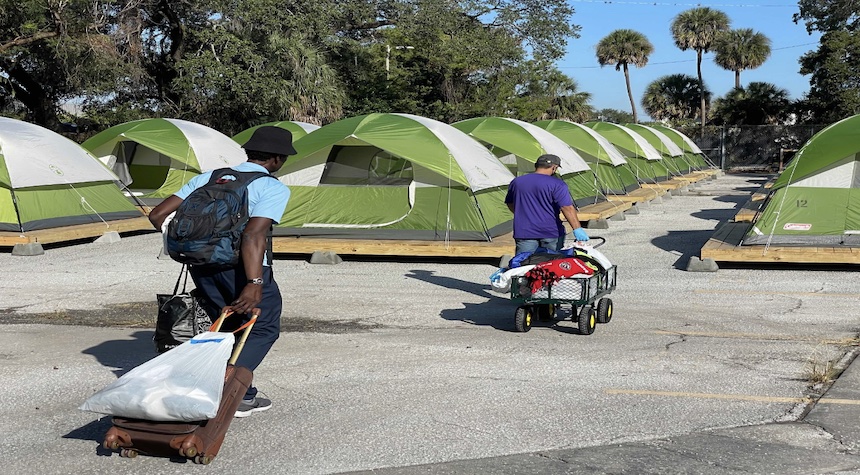
Fill a plastic bag with items from your house that you believe you will need. Go downtown and leave your home. Do not take your credit or debit card or PayPal. Leave your phone behind. Find a place where you can sleep.
You can “experience homelessness” for a period of four days and three nights, but you will have an advantage because you agreed to this. You showered before putting on clean clothes. You planned ahead and packed your groceries accordingly. You can’t fit four days’ worth of your usual food in one plastic bag, especially if toiletries and socks are included.
It’s possible that you had an experience with a passive verb, but it was not homelessness. You knew there was a solution in sight. You may have seen someone who was avoiding you by picking up their phone. Good. Tell them about your experience when you return home.
Remember that your meal costs as much as a three-night stay in a shelter. Next time you pass a woman in the street I hope you buy her food or shoes. Maybe give her $20. You should look at her, and realize that she didn’t plan or consent to her life. She is doing the best she can.

